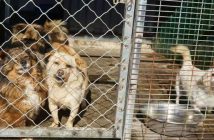
It’s often said that beauty is in the eye of the beholder. This may be a truism in the West, but standards of beauty in China are defined within cultural parameters that have existed for hundreds of years. Many expat women are often baffled by how different these norms are compared to those in their home countries.
There is a popular saying among Chinese women: “One white can cover up three kinds of ugliness” (一白遮三丑). Another translates to “white, wealthy, and beautiful” (白富美). Both of these phrases refer to one of the most prominent beauty ideals in China: the whiter the skin, the prettier the face. For western women who have never heard of this concept, think Snow White – but with an Asian twist.
To newcomers, this skin whitening craze may come as a shock. Alicia Carey, 28, is an African-American woman from Louisiana; she didn’t find out that pale skin was an ideal trait here until she moved to China over four years ago. She has found that her darker skin tone has at times made her an anomaly among the local Chinese population. The mentality of “the fairer, the better” clashes with what Carey says she has experienced in the US.
“In western culture, women are spending thousands of dollars in tanning beds and cosmetic surgery to have a body like Jennifer Lopez or Kim Kardashian,” she says. “Westerners are accepting the fact that there are beautiful full-figured women and women of color.” Carey also points out the popularity of African-American and Hispanic celebrities such as Halle Berry, Kerry Washington, Beyoncé, Eva Longoria, and Alek Wek.
The culture clash even affected Carey’s relationships with a Chinese man. She says she will never forget one of the last conversations they ever had: “His comment was: ‘If you were darker, I wouldn’t date you.’”
To live up to this fair-is-better ideal, Chinese women have spent billions of RMB on skin whitening products over the past decade. In 2010, Bernstein Research, a Wall Street research and brokerage firm, reported that the Chinese beauty market generated USD 12.5 billion in revenues, with skin care accounting for 70 percent of total sales.
The evidence is all around us. Skin care products can be found in almost any retail store, both large and small, in Beijing. If you’re looking for bleach-free products, be wary of lotions or face washes with the Chinese characters 美白 (meibai) or “whitening.”
Jessica Tan, a 32-year-old student at Tsinghua University, says she does not let the pale skin craze deter her from working on her tan. “I’m such a huge sun-worshipper,” explains Tan, who is Malaysian-American and grew up in San Francisco. “Whenever the AQI in Beijing is below 100 and there is a chance to [take in]some free vitamin D in the city, I’m on the rooftop of some random cafe in the hutongs or in Wudakou soaking up the sun.”
Instead, Tan has had more problems living up to another Chinese beauty ideal: thinner is better. For western women accustomed to easily finding clothes in their size, shopping in Beijing can be very frustrating. Even popular western brands such as American Eagle Outfitters only carry smaller sizes in their Beijing stores. At Solana, the largest size available for jeans is 10; most stores in the US carry size 12 and larger.
“Finding clothes in Beijing that fit can be next to impossible,” says Tan.
Kim Stover, 26, also finds shopping frustrating at times. The Philadelphia native moved to Beijing two years ago to teach English. “The super skinny thing is really annoying,” she says. “If you ask for a shirt or pants above a size 6, salespeople will look at you like you are a blimp. If you are in serious need of new pants, good luck!”
However, Jessica Tan doesn’t let local beauty standards affect her self-esteem. “Personally, I love having curves,” she continues. “I love being able to fill out the cup size of my bra or the fact that I need a sports bra when I go running.”
If you’re new to Beijing and find yourself having difficulty buying clothes, don’t be hard on yourself. There are others just like you who are trying to find where exactly they “fit in” – literally. In the meantime, Carey has some advice.
“Have confidence in yourself! Don’t compare yourself to locals and embrace the fact that your figure is different from many of theirs,” she says. “To young black girls and women: Ignore the negative comments that you hear in Beijing. Remember that you are beautiful and there’s nothing wrong with the way you were created!”
This article originally appeared in the beijingkids Home & Relocation Guide 2014. To get your free copy, email distribution@truerun.com or view it online at Issuu.



